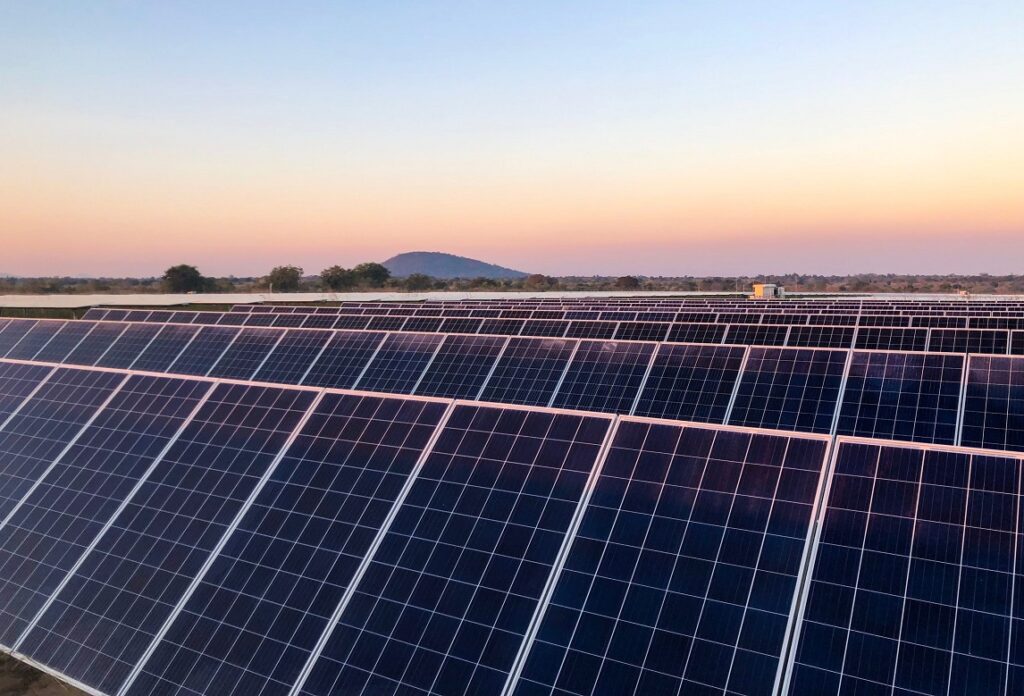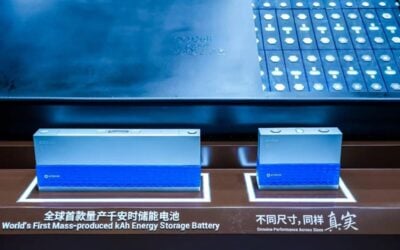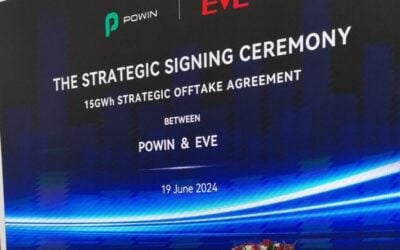
At COP28 last week, 11 countries joined a global consortium aimed at securing 5GW of battery energy storage deployments in low or middle-income countries.
The Battery Energy Storage System Consortium (BESS Consortium) was launched by the Global Energy Alliance for People and Planet (GEAPP) in April this year, with the backing of the Global Leadership Council, a so-called “high-level coalition of global leaders”.
Enjoy 12 months of exclusive analysis
- Regular insight and analysis of the industry’s biggest developments
- In-depth interviews with the industry’s leading figures
- Annual digital subscription to the PV Tech Power journal
- Discounts on Solar Media’s portfolio of events, in-person and virtual
Its priorities are to aid the rapid growth and development of grid-tied energy storage in low- or middle-income countries, as well as to further the development of off-grid renewable energy aggregation technologies.
It is into this first priority area that the latest announcement falls. The consortium’s stated goal for the 2023-2024 timeframe was to secure commitments from utilities and governments in more than 10 countries to deploy battery storage on their grids.
That effort has been a success, and the following countries signed up as ‘first-mover’ members:
(In alphabetical order)
Barbados
Belize
Egypt
Ghana
India
Kenya
Malawi
Mauritania
Mozambique
Nigeria
Togo
In addition, Indonesia showed “strong interest”, GEAPP said, without yet committing to join, while Vietnam participated in the launch, again without yet joining up.
Some of the above countries have already begun to deploy energy storage or established policies to support it, with India the furthest ahead in that journey, while others have a small handful of projects largely supported by development finance. In Kenya, for example, a feasibility study for a first project in the country has just been started, financed by the World Bank.
In a statement last week (2 December) at the COP28 UN Climate Change Conference, the alliance noted that an estimated 400GW of renewable energy is needed to alleviate global energy poverty by 2030 in line with UN Sustainable Development Goal 7 (SDG7), for which 90GW of energy storage will be required.
GEAPP also claimed that level of renewables deployment would reduce CO2 emissions by a gigaton.
That 5GW would represent an initial jumpstart towards achieving that 90GW goal, with projects committed to expected to be installed and online by the end of 2027.
In addition to the buy-in from those first-mover nations, the BESS Consortium will be supported by a host of development finance institutions, non-profits, private and state-backed companies. They include the World Bank, African Development Bank and Asian Development Bank, German Agency for International Cooperation (GIZ), the US’ National Renewable Energy Laboratory and developers Masdar and Infinity Power.
The COP28 Presidency, which is led by the UAE, is backing the consortium as one of its resource partners, as well as being owner of Masdar.
The Global Leadership Council meanwhile has the backing of parties including the Rockefeller Foundation and Norway’s sovereign wealth.
‘Africa needs local manufacturing’ for BESS value chain
“Africa has the largest source of renewable energy in the world, especially solar power, for which it has 60% of global potential, although it uses only 1%. Consequently, despite its huge potential in renewable energy, Africa has close to 600 million people without electricity,” African Development Bank president Dr Akinwumi Adesina said in a speech at COP28 as the consortium’s members were announced.
“To change this, the African Development Bank is investing heavily in renewable energy. We currently devote 87% of our financing for power generation to renewable energy,” the president said, noting that battery storage is essential to the integration of variable renewable energy (VRE).
“That is why the African Development Bank is strongly promoting battery energy storage systems.”
Citing two examples of battery storage projects the bank is supporting, including a solar-plus-storage project in Egypt just announced by Norwegian renewables developer Scatec, Adesina said that pooled procurement could help lower the cost of energy storage equipment.
However the president argued the continent needed to go further and establish local manufacturing, taking advantage of Africa’s “global dominance in deposits of green metals” and do so profitably.






